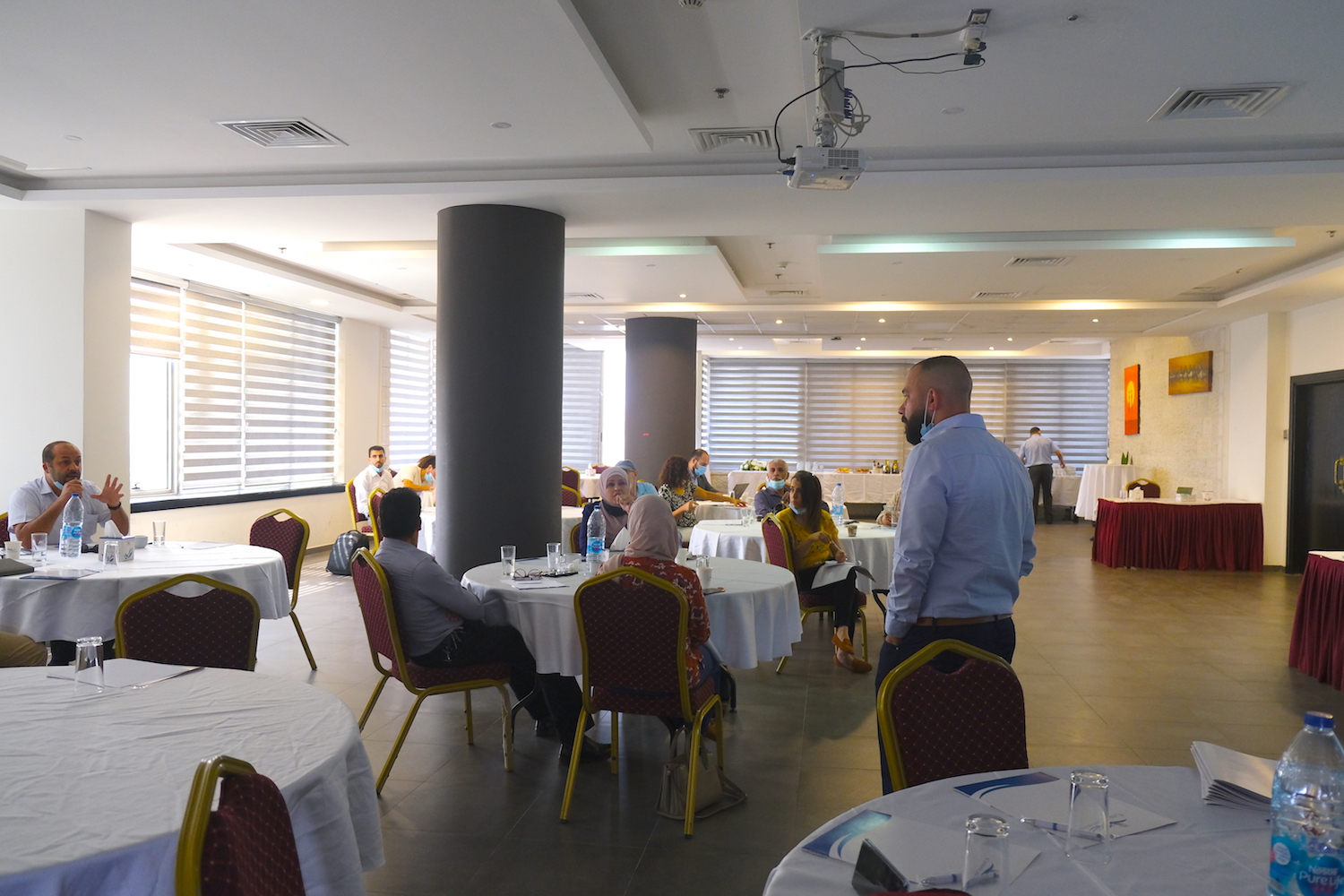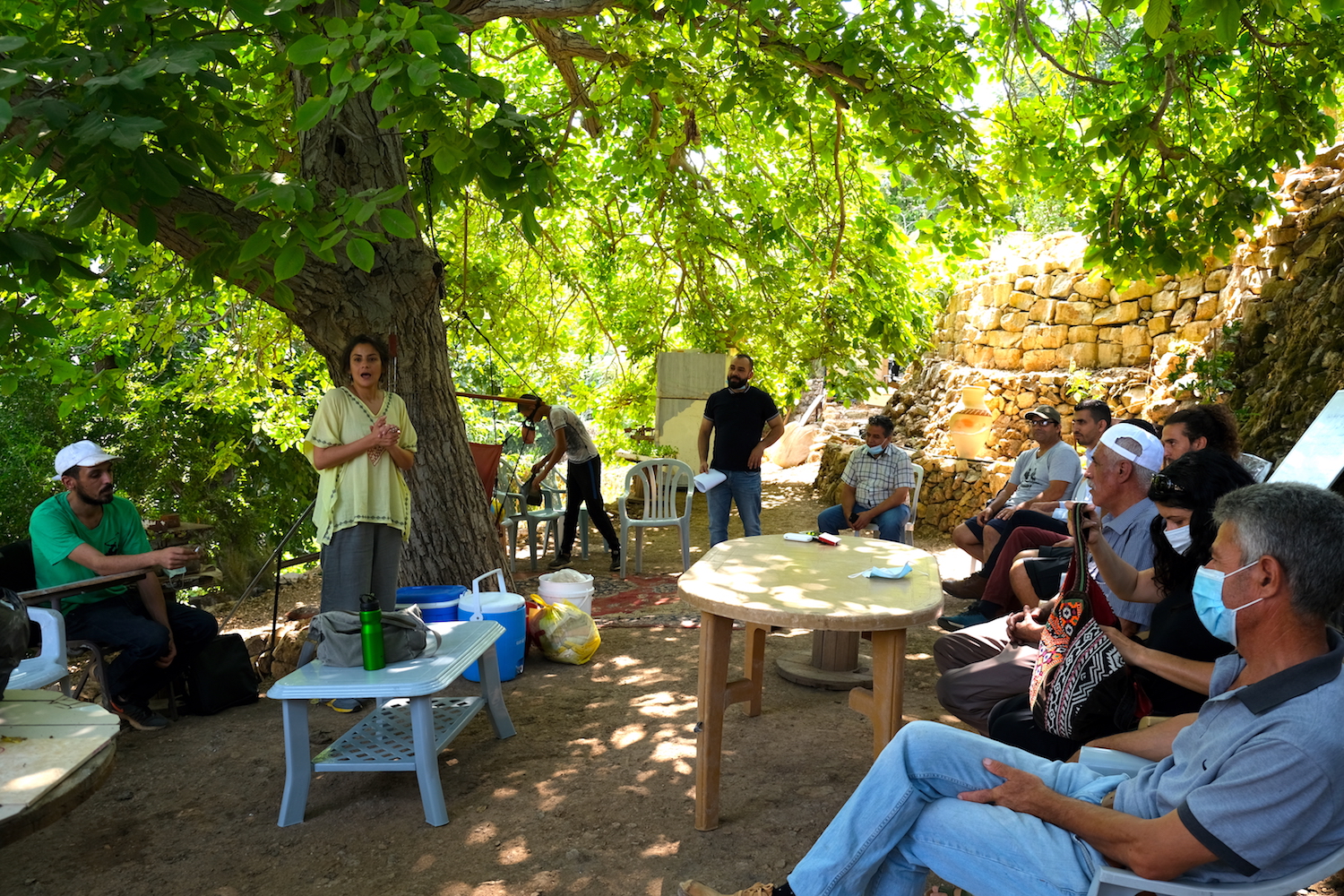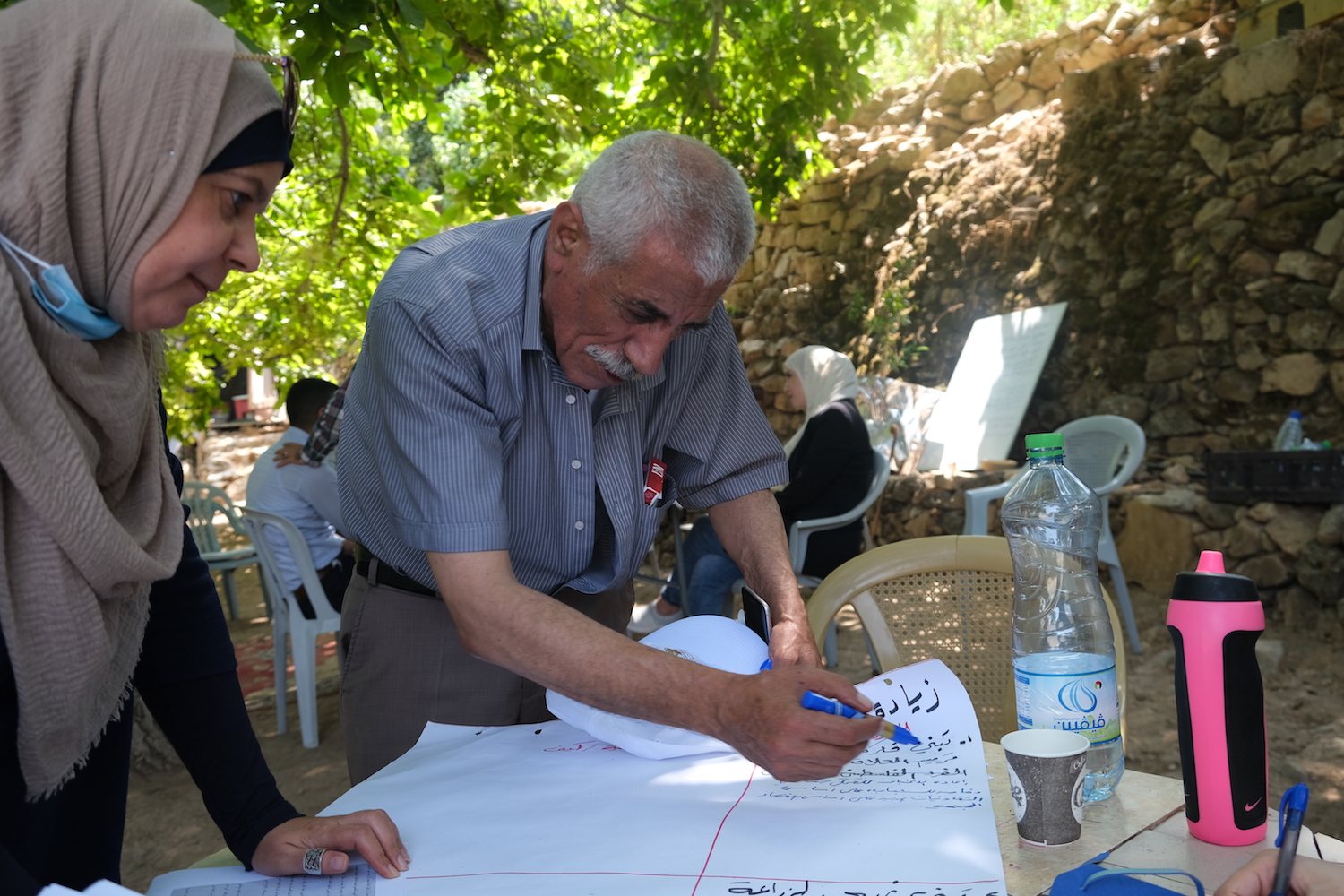By Lina Isma’il- Communtiy Programs Officer
The term national food sovereignty may sound dreamy when you first hear it, you would think, is it possible for a colonized nation, with no sovereignty over resources and borders, to practice national food sovereignty?
But what if we look at it as a liberating development approach that preserves our right to live in dignity? Starting with the pursuit of self-sufficiency in the food production process through relying on local natural inputs and the rich local knowledge inherited through generations.
In light of the continuous deterioration of the agricultural sector, whose various political, economic and social factors cannot be ignored, in spite of the external funding that continues to pour into large agricultural projects relying on the latest agricultural technologies (albeit less than in previous years), can we not stop for a minute and reconsider the current agricultural approach we are taking? Why not try an agricultural development approach that is environmentally sound, inexpensive, applicable, replicable, and does not depend on external inputs?
And what is our role as a people, civil society, government, and private sector in adopting this approach? What if we start with our gardens, our rooftops, and farms in our villages, cities, and refugee camps? What if we used food scraps, and plant and animal waste to enrich the soil instead of relying on imported chemical fertilizers? What prevents us from saving heirloom seeds from season to season? What if we could share these seeds?
What if all civil society institutions working in the development sector, could focus on this concept in their development strategies and empowerment projects, instead of spending big money on importing agricultural technologies whose input largely depends on external knowledge, chemicals, and seeds? This will eventually lead to the loss of our traditional agricultural knowledge inherited over generations, and will further alienate us from identity and land, by commodifying it and reducing its value to abstract materialism, in addition to the loss of our genetic stock of heirloom seeds that are adapted climatically to our region, that is also distinguished in taste and nutritional benefit.
These are all questions that we raise, explore and experiment with at Dalia, out of our belief in the right of the Palestinian people to have a say in the “development” process, in addition to restoring faith in our local resources. Thus, we are addressing the concept of Food Sovereignty and its fundamental focus on the richness of local resources, and their utilization in agricultural production, in addition to providing job opportunities for youth and women, and the revival of social and cooperative values in the Palestinian Society. We started this process in 2018 with mujawarat (convening) discussing the "Role of Community Giving in Achieving Food Sovereignty" which resulted in a recommendations paper, on the importance of having a community-supported body, and knowledge production in this field, in addition to the role of the government in supporting farmers towards food sovereignty.
Based on the recommendations paper, we conducted a series of Mujawarat (convening) in 2020, to develop a position paper on “Palestinian National Food Sovereignty”, and later a study on “Palestinian National Food Sovereignty in light of colonization which will be launched in 2021. This study aimed to identify priority issues to be addressed in the process of realizing national food sovereignty, considering the different factors in the political, economic, and social context. This was done through dialogue sessions with several actors in the field, including experts and academics, various agricultural and development institutions, community leaders, farmers, and activists, in addition to agricultural unions and cooperatives and village councils, in order o consolidate opinions and positions with regards to food sovereignty, and engage in discussions with decision-makers on the possibility of adopting it in the development policies and strategies.

Another study was also conducted on “Status of Farmers in Border Areas in the Gaza Strip from Food Sovereignty Perspective", which analyzed the reality of the farmers in border areas in the Gaza Strip, their challenges, and proposed solutions based on local inputs and resources, using a territorial approach that addresses the specificity of each region.


We are aiming to build on the studies’ findings in developing our programs on the subject, and on several aspects, among them are: working at grassroots level in supporting different farming models adopting the concept, knowledge production and sharing, and influencing policy-making.
At Dalia, we also work on adopting agroecology as a backbone for achieving food sovereignty throughout our activities in our community programs, such as Mujawarat and trainings, this also includes our community garden in our headquarter office.
We believe in the importance of collaboration to achieve the desired change through community work, and we consider our work to be complementary to the efforts being taken in this regard, therefore,
we seek to build partnerships that will advance this movement of agroecology and national food sovereignty in the country, and we call upon all those interested to join us.

